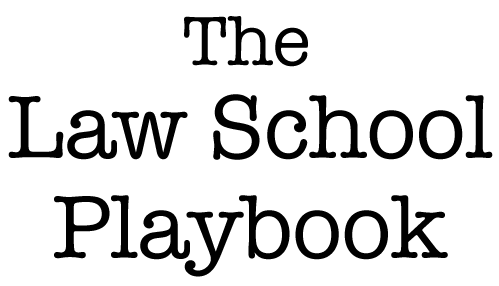Hit the ground running your first week of classes by focusing on these best practices for note taking:
During class: Many students overlook the importance of hypotheticals. You always want to include the hypotheticals in your notes—they are the best examples of how a rule works. Also be sure to capture any points of repetition or information your professor writes on the board. Similarly, have a system that distinguishes the most important points made during class; for example, use stars, the professor’s initials, etc. Finally, don’t let your notes trail off toward the end of the class. This is a critical time to listen because your professor may summarize key points or provide new information if class focused too long on a different point that day.
Practical Tip: Use abbreviations to save time when taking class notes:
∏ or P - plaintiff
∆ or D - defendant
§ - section
∴ - therefore
K - contract
rev’d - reversed
aff’d - affirmed
tc - trial court
ac - appellate court
S. Ct. - supreme court
TRO - temporary restraining order
MTD - motion to dismiss
MSJ - motion for summary judgment
bc - because
e’er - employer
e’ee - employee
w/ - with
w/o - without
re:- about
FRCP - federal rules of civil procedure
R, R2 - Restatement of Law, Restatement Second
Post class: Perhaps even more significantly, many students are so focused on preparing before class that they fail to do the necessary work after class. The relevant research demonstrates that long-term retention is impacted by generative activities involving your notes after class; for example, reorganizing, identifying areas of confusion, filling in gaps, and drawing connections between ideas. At bottom, the quality of your post-class work is a proven predictor of your performance.
Real-life application: I learned immediately at my first legal job that you never sit down with a partner, judge, or colleague without a legal pad. Ever. Why? Because it is critically important to take notes at all times. In our profession, time is money and you don’t want to waste valuable time (and the client’s money) by asking someone to repeat the case background, to explain your assignment a second time, etc. It just isn’t professional. In sum, note taking is a valuable skill that you will use in your legal careers. I urge each of you to become an expert in your own learning by finding the note-taking method that works best for you. As always, if you have any questions concerning note taking or other skills-related issues, don’t hesitate to schedule an appointment with me.
